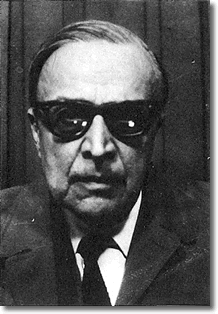Notes on A. Kojève’s “Hegelian Concepts”
and G. Bataille’s “Letter to X, Lecturer on Hegel”
|
Alexandre Kojève, “Hegelian Concepts,”
The College of Sociology, 1937-39, ed. Denis Hollier, trans. Betsy
Wing (Minneapolis: University of Minnesota Press, 1988), 85-89.
- English translation: Introduction à la
lecture de Hegel: Leçons sur la Phenomenologie de l’esprit,
2nd ed. (Paris: Gallimard, 1947), 153-54, 151-52.
|
BIBLIOGRAPHICAL NOTES
1. As Denis Hollier explains in his introductory note, no text has been
found of Kojève’s lecture at the Collège de Sociologie
(04 Dec 1937). Hollier thus reconstructs something of the lecture by excerpting
two passages from Kojève’s Introduction à la lecture
de Hegel that correspond to Roger Caillois’s recollection of
the lecture (33 years later) and Bataille’s written response, dated
two days after the lecture (“Letter to X”). As Hollier notes,
the two passages are from Kojève’s 1936-37 course, pp. 153-54
and 151-52 in the French Introduction. The English translation
of Hollier’s Le Collège de Sociologie does not, however,
note the fact that the 1936-37 course was not included in the English
translation of the Introduction.
Additional information regarding the two passages: The subject matter
of Kojève’s 1936-37 course was Hegel’s discussions of
“culture” (Bildung) and “morality” (Moralität)
in the Phänomenologie: Parts B and C of Chapter VI-Spirit
(Geist); see pp. 294-409 in A. V. Miller’s English translation.
More specifically, Hollier excerpts the passages from Kojève’s
rather free explication of the final subsection of Hegel’s discussion
of “morality”: “Conscience. The ‘beautiful soul,’
evil and its forgiveness” (pp. 383-409 in Miller’s translation).
|

Alexandre Kojève (1902-1968), c.
1960
|
TEXT NOTES
Excerpt A (from pp. 153-54 of Kojève’s Introduction à
la lecture de Hegel)
1. What Kojève presents as an explication of Hegel’s abstract discussion
of “Evil and its forgiveness” is, more accurately, a reading of this
discussion in terms of Kojève’s understanding of Hegel’s politics.
There is no reference to Napoleon in Hegel’s discussion nor in any part
of the Phänomenologie. However, Kojève’s reading is
far from idiosyncratic. The asssessment of Hegel’s philosophical writings
on the basis of his political beliefs go back to his own life, largely because
he was a German opposed to German nationalism. Moreover, Hegel’s admiration
for Napoleon had long been established by letters he wrote from Jena, when his
completion of the Phänomenologie coincided with Napoleon’s
victory over the Prussian army. A good introduction to the relationship between
the Phänomenologie and Hegel’s politics is Chapter 4 of Shlomo
Avineri’s Hegel’s Theory of the Modern State:
The period of Hegel’s stay in Jena saw the fiercest battles between
the French army and the various coalitions of German states ranged against
it. What characterized Hegel’s political attitude during this period,
as well as during his subsequent periods in Bamberg (1807-8) and Nuremberg
(1808-16), was his firm support for the French, his rejoicing at the Prussian
defeat at Jena, his opposition to the German nationalist anti-French upsurge
in 1813 and, above all his admiration for Napoleon, the great modernizer of
Europe and of Germany. Much more than mere infatuation with Napoleon, which
was quite common among intellectuals at the time, was involved here, and Hegel’s
correspondence of that period provides ample textual evidence to support the
contention that his political views were related to a fundamental theory about
the historical significance of what was happening in Germany. (63)
Averni also quotes from the letter that is the source for Caillois’s reference
to Hegel’s symbol of “the man on horseback, who marks the closure
of History and of philosophy”:
This morning I saw the Emperor [Napoleon]—this world-soul (diese
Weltseele)—ride through town . . . It is a marvelous feeling to see
such a personality, concentrated in one point, dominating the entire world
from horseback . . . It is impossible not to admire him. (Hegel to Niethammer,
13 Oct 1806).
Excerpt B (from pp. 151-52 of Kojève’s Introduction à
la lecture de Hegel)
1. Die schöne Seele - “The beautiful soul.” This is a
phrase from Hegel’s subheading for this final section of Chapter 7, which
Kojève presents as “Das Gewissen, die schöne Seele, das Böse
und seine Verzeihung” (“Conscience. The ‘beautiful soul,’
evil and its forgiveness”; notice the different punctuation in A. V. Miller’
translation).
|
Georges Bataille,
English translation: “Letter to X, Lecturer on
Hegel,” The College of Sociology, 1937-39, ed. Denis Hollier,
trans. Betsy Wing (Minneapolis: University of Minnesota Press, 1988),
113-23.
|
CRITICAL BIBLIOGRAPHY
WORKS CITED
IMAGE CREDITS
|
1933-34
|
Number of students registered: 19
Elèves diplômés: H. Corbin
Elèves titulaires: Adler
Auditeurs assidus: Gordin, Gottlieb, R. Queneau, Ralli, Spire,
Mme. Carlos, Mlle. Lattes, Mlle. Ostermann
Others:
|
|
1934-35
|
Number of students registered: 11
Elèves diplômés: Corbin
Elèves titulaires: Adler, R. Queneau
Auditeurs assidus:
Others: |
|
1935-36
|
Number of students registered: 11
Elèves diplômés: Corbin
Elèves titulaires: Adler
Auditeurs assidus:
Others: |
|
1936-37
|
Number of students registered: 11
Elèves diplômés: Corbin
Elèves titulaires: Adler
Auditeurs assidus:
Others: |
|
1937-38
Ch. VII: Die Religion
|
Number of students registered: 11
Elèves diplômés: Corbin
Elèves titulaires: Adler
Auditeurs assidus:
Others: |
|
1938-39
|
Number of students registered: 11
Elèves diplômés: Corbin
Elèves titulaires: Adler
Auditeurs assidus:
Others: |
